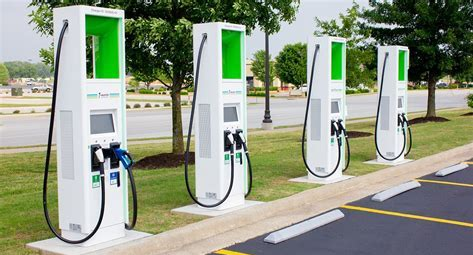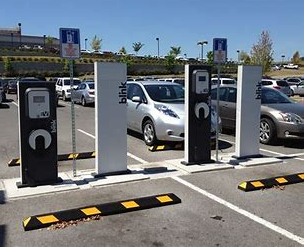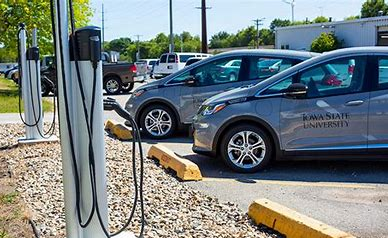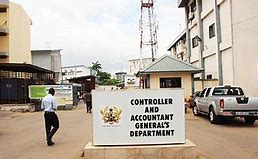In an effort to accelerate its energy transition, the country of Ghana has set an ambitious goal of building 1,000 electric vehicle (EV) charging stations across the nation within the next five years. This visionary plan, spearheaded by Dr. Mohammed Amin Adam, the Minister of State at the Ministry of Finance, reflects Ghana’s commitment to embracing sustainable practices and staying at the forefront of global environmental initiatives.
Ghana’s Commitment to Energy Transition
Ghana acknowledges the significance of sustainable energy transition in driving economic growth, improving living standards, and ensuring a greener future for its citizens. To realize this vision, the country has developed a comprehensive National Energy Transition Framework. This framework outlines a series of long-term policy recommendations aimed at decarbonizing the energy sector and achieving net-zero emissions by 2070. Ghana intends to utilize its abundant natural resources to transition to cleaner and more affordable energy sources.

The Role of Electric Vehicle Charging Infrastructure
As the world increasingly embraces electric mobility, Ghana is determined not to be left behind. Dr. Adam emphasized the need to build the necessary infrastructure for electric vehicles, considering that current vehicle manufacturing trends are increasingly focused on electric energy technology. By investing in the establishment of electric vehicle charging stations, Ghana aims to facilitate the widespread adoption of electric vehicles and ensure the seamless integration of this sustainable mode of transportation into its infrastructure.

The Benefits of Sustainable Energy Transition
The transition to sustainable energy sources offers numerous benefits for Ghana and the wider West African sub-region. Apart from reducing carbon emissions and combating climate change, sustainable energy transition can stimulate economic growth, uplift communities, and foster innovation. Ghana’s energy transition plan aims to power industries, electrify communities, and promote the use of clean and affordable energy. By embracing solar, wind, hydro, and geothermal energy projects, Ghana envisions a future built on sustainable and environmentally friendly energy solutions.
Financial Considerations and Resource Mobilization
Achieving Ghana’s energy transition goals necessitates significant financial resources. Dr. Adam estimates that approximately US$600 billion will be required to accomplish the set targets. To ensure successful implementation, it is crucial to mobilize resources from both the public and private sectors. The Ministry of Finance is committed to championing policies that incentivize investments in sustainable energy projects while creating an enabling environment for private sector participation.
Promoting Energy Efficiency and Innovative Technologies
To maximize the effectiveness of the energy transition, Ghana emphasizes the importance of energy efficiency and the promotion of innovative technologies. These components play a critical role in ensuring long-term sustainability and building a robust and interconnected energy network. Investments in research and development of energy storage solutions, smart grids, and electrified transportation are essential to support Ghana’s energy transition journey.
Leveraging Africa’s Resources and Trade Opportunities
Professor Kenneth Amaeshi of the European University Institute highlighted the significance of Africa leveraging its own resources to finance energy transition processes. By adopting a pace that suits local conditions and challenges, Ghana and other African countries can avoid rushing into foreign energy transition policies that may not address their unique needs. The African Continental Free Trade Area (AfCFTA) provides a platform for African nations to develop their technology, skills, and investments through trade, supporting sustainable energy transition at a regional level.
Embracing Best Practices and Local Content
Learning from global best practices, Ghana aims to develop regulations that promote local content and ownership in the energy transition space. By doing so, the country can enhance its benefits from the transition and create athriving domestic industry. Professor Peter Quartey, the Director of the Institute of Statistical, Social, and Economic Research at the University of Ghana, emphasized the need for increased investment in solar energy and improved extraction of natural resources. By drawing on successful models from around the world, Ghana can establish regulatory frameworks that foster local participation and maximize the country’s gains in the energy transition sector.
Conclusion
Ghana’s commitment to building 1,000 electric vehicle charging stations within the next five years demonstrates its determination to embrace sustainable energy transition. By investing in electric vehicle infrastructure, Ghana aims to seamlessly shift from petroleum-fueled vehicles to electric ones, contributing to global efforts to combat climate change and reduce carbon emissions. The government’s National Energy Transition Framework provides a roadmap for decarbonizing the energy sector and achieving net-zero emissions by 2070. With a focus on resource mobilization, energy efficiency, and the promotion of innovative technologies, Ghana is poised to create a greener and more prosperous future.
FAQs (Frequently Asked Questions)
1. How many electric vehicle charging stations does Ghana plan to build?
Ghana plans to build 1,000 electric vehicle charging stations across the country within the next five years.
2. What is the goal of Ghana’s energy transition plan?
The goal of Ghana’s energy transition plan is to decarbonize the energy sector, achieve net-zero emissions by 2070, and promote the use of clean and affordable energy sources.
3. Why is the installation of electric vehicle charging infrastructure important for Ghana?
The installation of electric vehicle charging infrastructure is crucial for Ghana to facilitate the adoption of electric vehicles and smoothly transition from petroleum-fueled vehicles to electric ones.
4. How much funding is required for Ghana’s energy transition?
Approximately US$600 billion is estimated to be needed to achieve Ghana’s energy transition goals.
5. What are the benefits of sustainable energy transition for Ghana?
Sustainable energy transition can drive economic growth, improve living standards, reduce carbon emissions, and foster innovation in Ghana while ensuring a greener and more sustainable future.

















